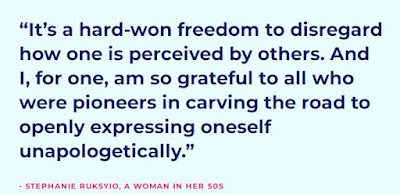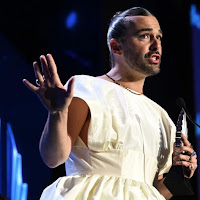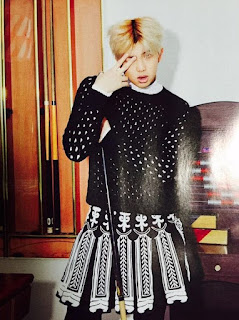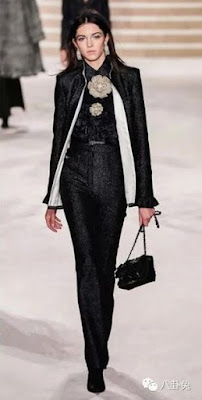"Is my skirt too short?" and other questions that older women ask about their fashion choices.
When I look at photos of myself from 20 to 30 years ago, I realize that I had no idea how good I looked. I never thought twice about wearing short skirts and dresses when I was in my 20s, 30s and even 40s. I’m now in my early 50s.
Recently, I tried on some of the things in my closet and deemed them “too short” — not something a younger me would have ever done. That got me thinking: How short is too short when you’re a half-century old or more? Is it different than when I was 22? Should it be different? How else have my style and fashion choices changed as I’ve aged?
I became intrigued by the answers to these questions — if there were answers, and if those answers even mattered — as well as the thoughts, worries and fears that other women my age have about their fashion and style choices. So I spoke to as many of my peers as I could, and also got insight from a psychologist. The stories and conversations we had were illuminating, validating and wonderfully insightful.
The Freedom Of Caring Less About What You’re ‘Supposed’ To Wear
Thankfully, as I’ve gotten older, I care less about what other people think of the way I look. Not that sometimes I still don’t worry about how I’m perceived, but ultimately I am better about not giving those kinds of concerns much credence. One person responded to my miniskirt question by saying: “No worries. No fear. I wear what I want.”
 |
| Rhonda - Age 38 |
And when it comes to the gaze of others, there’s a certain freedom to be found in acknowledging that not everyone is watching you. “I look at other women my age and think, nobody cares how we dress anyway, which also gives me a certain amount of carefreeness,” Jeannie said.
Natalie told me that she’d recently been feeling nostalgic for her college years look and questions whether she’s trying too hard to look young.
“I have been experimenting on adding elements of that look to my choices. And I definitely pause and wonder if it looks forced, if it makes me look like I’m trying to look younger or if I look out of touch with what someone my age is ‘supposed’ to wear,” she said.
Many of us spend a good deal of time worrying about how we look and whether we will appear attractive to others. And this, of course, is always tied up in how we choose to dress, as well as our relationships with our own bodies, Kearney-Cooke said.
“We also have to teach people how to talk about our bodies,” she said. She told me a story about one of her clients who received a clean bill of health from her doctor. The woman was very pleased, but when she told her husband, he asked if the doctor had said anything about her “big butt.”
“And this is the best part,” Kearney-Cooke told me. “The woman replied, ‘No, he didn’t ask about you.’”
A big part of accepting aging is the maturity that comes along with it. As Stephanie put it: “It’s a hard-won freedom to disregard how one is perceived by others. And I, for one, am so grateful to all who were pioneers in carving the road to openly expressing oneself unapologetically.”
“When I was younger, I had no idea how good I looked,” Joan said. “No one does. But then you get older and you look at pictures of yourself when you were young, and you think: ‘Jeez, I really looked great. I wish I’d appreciated that more and stressed less.’”











































